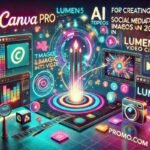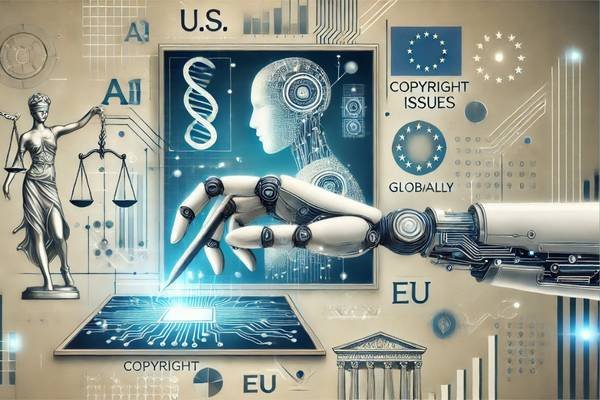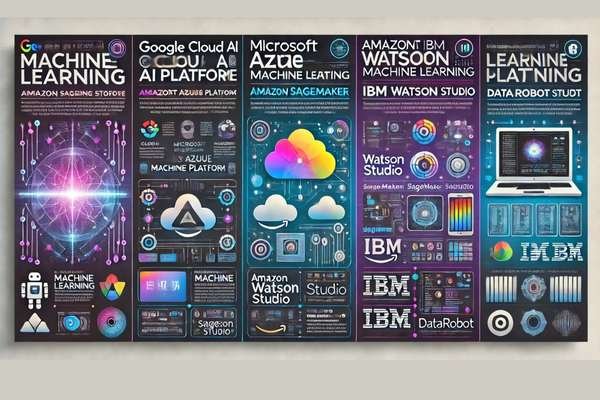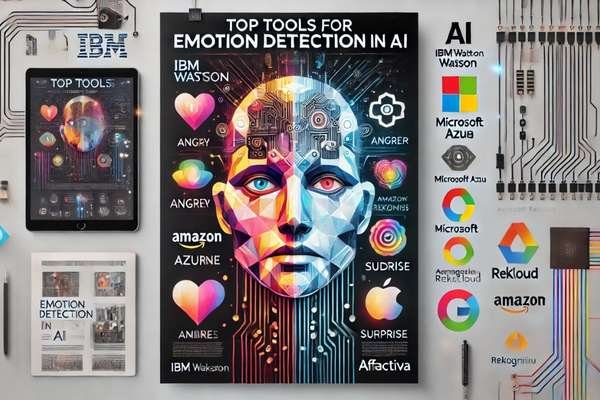
Top 5 AI-Powered Image Editors for Quick Enhancements
November 13, 2024
The best AI tools for creating content on social media in 2025
November 13, 2024As the use of AI-generated images rises in popularity, many digital marketing professionals, developers, and content creators are wondering: “Are AI images copyright-free?” This question is crucial for anyone using AI-generated visuals, as copyright implications can impact usage rights, licensing, and monetization.
Table of Contents
1. Understanding Copyright in AI-Generated Images
What is Copyright and Why Does it Matter for AI Images?
Copyright is a legal framework that grants the creator of an original work exclusive rights to its use and distribution. This concept, traditionally applied to art, literature, and music, is now being challenged by AI, which can create images that may resemble human-created artwork. For content creators, marketers, and developers, understanding copyright is essential to avoid potential legal pitfalls and ensure the ethical use of AI-generated images.
Copyright Law and Human Authorship
Most copyright laws stipulate that only works created by humans are eligible for copyright protection. In the case of AI, there is currently no human directly responsible for generating the final image, leading to ambiguity. Courts worldwide are still debating whether AI-generated images should qualify for copyright protection and, if so, who should own the rights.
Key Points:
- Lack of Human Authorship: Copyright traditionally requires human authorship, which AI-generated images lack.
- Legal Ambiguity: The copyright status of AI-generated images is uncertain, with laws varying across countries.
- Risk for Creators: Without a clear copyright framework, using AI images carries some risk of legal disputes.
2. Current Legal Status of AI Images and Copyright
2.1 U.S. Copyright Office and AI Images
In the United States, the Copyright Office has stated that it only grants copyright to works created by humans. This means that purely AI-generated images, with no significant human input, are generally not copyrightable in the U.S.
Key Considerations:
- The U.S. Copyright Office does not currently recognize AI-generated images as copyrightable.
- Images that involve substantial human intervention, such as editing, may be eligible for copyright.
- This limitation applies regardless of the AI tool used.
2.2 Copyright Perspectives in the European Union
The European Union has also been grappling with the copyright implications of AI-generated content. While the EU’s approach to copyright is more flexible, it currently emphasizes the need for a clear author to claim copyright. As a result, AI-generated images without direct human authorship are unlikely to receive copyright protection in the EU as well.
Key Considerations:
- Similar to the U.S., the EU generally requires human authorship for copyright protection.
- The EU may offer some protections for images created with extensive human input.
- The AI creator may own certain usage rights, depending on the tool’s terms of use.
2.3 Copyright Status in Other Countries
Countries like Japan, Canada, and Australia have yet to establish clear copyright rules for AI-generated images. Each jurisdiction has its own approach, but most are cautious about granting copyright to works without human authorship. This ambiguity underscores the need for businesses to consult with legal experts when using AI-generated images internationally.
3. Common Uses of AI-Generated Images and Copyright Considerations
3.1 AI-Generated Images for Marketing
Marketers often use AI-generated images for social media content, advertisements, and branding. Since these images can be unique and visually appealing, they serve as valuable assets for grabbing audience attention.
Key Considerations for Marketing:
- Rights Limitations: Be aware of usage rights specified by the AI platform to avoid copyright issues.
- License Agreements: Some AI tools, like DALL-E or Adobe Firefly, specify licensing rights that allow limited commercial use.
3.2 AI Images in Content Creation and Publishing
For content creators, AI-generated images can add a new dimension to blog posts, articles, and website designs. However, it’s crucial to verify if the AI tool grants commercial usage rights for content creation purposes.
Key Considerations for Content Creation:
- Commercial Licensing: Some AI tools grant limited commercial licenses, while others do not.
- Terms of Service: Read and understand the AI platform’s terms to avoid copyright conflicts.
3.3 AI Images for Product Development and Prototyping
Many developers and designers use AI images for concept designs, product visualization, and prototypes. This application generally has fewer copyright concerns since the images aren’t directly sold but are instead used as a part of the development process.
Key Considerations for Product Development:
- Internal Use: AI-generated images used internally for concept development typically avoid copyright issues.
- Non-Commercial Licensing: Check the AI platform’s licensing terms for internal, non-commercial use.
4. Practical Steps for Using AI-Generated Images Safely
4.1 Understanding Licensing Agreements
Most AI image generators offer licensing agreements that specify how users can use the generated images. Licensing agreements might grant commercial rights, restrict usage, or require attribution, depending on the platform.
Actionable Steps:
- Read Terms Carefully: Always read the AI tool’s terms of service to understand usage rights.
- Choose the Right License: Select AI tools that offer licenses compatible with your intended use.
- Attribution Requirements: Some platforms may require attribution, especially for free versions.
4.2 Modifying AI-Generated Images
One way to add a layer of originality to AI-generated images is by modifying them. Many legal experts argue that images with significant human modification may qualify for copyright protection.
Actionable Steps:
- Edit for Originality: Add significant customizations, such as colors, backgrounds, or elements.
- Use Creative Software: Tools like Adobe Photoshop can help you add unique elements that transform the image.
- Document Modifications: Keep a record of changes to demonstrate human input in the final work.
4.3 Consulting Legal Experts
For businesses regularly using AI-generated visuals, consulting a legal expert can provide clarity on copyright issues. Legal advice ensures compliance with relevant copyright laws and reduces the risk of legal disputes.
Actionable Steps:
- Seek Legal Consultation: Consult with copyright lawyers for specific use cases.
- Consider Long-Term Solutions: Evaluate legal risks if AI-generated images are a significant part of your content strategy.
- Stay Updated: Monitor legal developments as copyright laws evolve to include AI-generated works.
Are AI Images Copyright Free ? recap
| Aspect | Description | Relevant Links |
|---|---|---|
| Copyright Status | AI images lack human authorship, making copyright eligibility unclear in many jurisdictions. | U.S. Copyright Office |
| Licensing Agreements | Most AI tools provide usage licenses; check terms for commercial or attribution requirements. | DALL-E Terms |
| Editing for Originality | Significant human modification may qualify images for copyright protection. | Adobe Photoshop |
| Legal Consultation | Consult with copyright experts for clarity on AI image use in your region. | World Intellectual Property Organization |
5. Frequently Asked Questions
Are AI-generated images automatically copyright-free?
No, AI-generated images are not automatically copyright-free. Most copyright laws only protect works created by humans, so AI-generated images may not be eligible for copyright. However, licensing agreements from AI platforms may grant specific usage rights.
Can I use AI-generated images for commercial purposes?
It depends on the AI tool’s licensing agreement. Some tools allow commercial use, while others may restrict it or require a paid subscription for commercial rights. Always review the platform’s terms before using AI images commercially.
What are the risks of using AI-generated images without verifying copyright?
Using AI-generated images without understanding copyright implications can lead to legal issues, such as infringement claims or licensing violations. It’s important to verify the image’s copyright status and review licensing terms to avoid potential disputes.
Conclusion
While AI-generated images offer exciting opportunities for digital marketing professionals, developers, and content creators, their copyright status remains a gray area. Most copyright laws currently do not protect AI-generated works due to the absence of human authorship. By understanding licensing agreements, modifying images, and consulting legal experts, businesses can use AI-generated visuals more confidently. As copyright laws evolve, staying informed will be key to leveraging AI-generated images effectively and ethically in professional content strategies.








